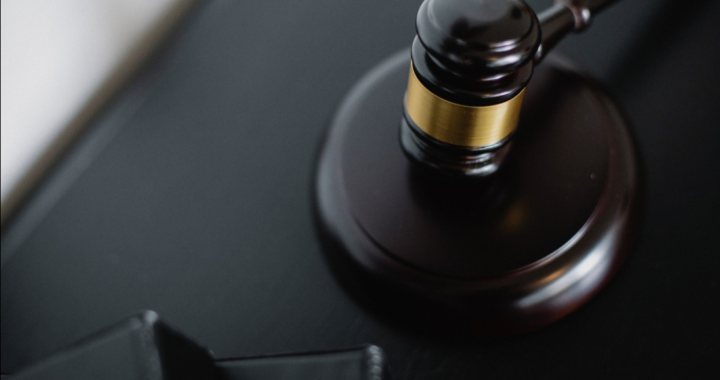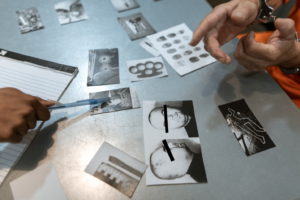Evidence authentication is a mandatory court procedure that is followed in the court of law during trials and proceedings. Every criminal has the right to be considered non-guilty until convicted. But in order to reach a just decision, the evidence presented before the jury has to be authentic and valid for the case in question.
However, timely testimonials backed up by authenticated pieces of evidence can act as a game-changing factor in any trial. Judges weigh the credibility of pieces of evidence based on their genuineness and whether it will help them to reach a verdict or not.
Here are some things that you need to know about criminal evidence authentication.
The Basics
Whenever a criminal activity is reported by an affected party, it has to be backed up with strong evidence to support one’s account. This is a basic legal protocol followed by all law enforcement forces to make sure that their time and effort are utilized appropriately. There are two types of evidence, namely, testimonial and non-testimonial evidence.
Testimonial Evidence
Testimonial evidence is given by witnesses that have witnessed any criminal activity firsthand. They present their account in court under oath. For instance, a witness may point out the accused in a courtroom and declares them as the person in question. Such evidence does not need to be authenticated because the account of an eyewitness is authentic in itself.
Non-Testimonial Evidence
Non-testimonial evidence, also known as physical evidence is the first piece of information that is collected from a crime scene. These can be tangible items, like photographs, videos, tapes, or crime weapons. Such evidence is only presented when a case proceeds to trial. The authenticity of physical evidence is performed by forensic experts and once cleared by them, they are admissible in court.
The Importance of Evidence Authenticity
Evidence authentication is essential for the jury to reach a fair verdict in any trial. In addition, some criminal cases like homicides require thorough investigation and authenticated criminal evidence can play a deciding role in reaching a verdict.
The Core of Evidence Authenticity
Ensuring evidence authenticity transcends mere procedural necessity; it forms the fundamental cornerstone of a just trial. In intricate criminal cases like homicides, where a thorough investigation is imperative, authenticated evidence becomes the linchpin for reaching an equitable verdict. It guarantees that the evidence presented to the jury is dependable, impartial, and capable of withstanding meticulous scrutiny.
Evolution in Forensic Services
With technological progress, forensic services are assuming an increasingly pivotal role in validating criminal evidence. In the Florida legal landscape, organizations seeking court-certified forensic services can turn to Eclipse Forensics. Specializing in criminal evidence authentication, including audio and video authentication, Eclipse Forensics comprises a team of digital forensic experts dedicated to upholding the integrity of the legal process.
1. Advancements in Forensic Technology:
In the realm of forensic technology, the expertise of a computer forensics expert witness and a data forensic expert is integral. Modernizing investigative methods with cutting-edge techniques, such as digital forensic services, ensures a heightened accuracy in evidence authentication. This evolution, incorporating mobile device forensics and forensic cell phone data recovery, has become instrumental in enhancing the credibility of evidence presented in court.
2. Legal Precedents and Landmark Cases:
The application of mobile device forensics and forensic cell phone data recovery has left an indelible mark on legal precedents and landmark cases. The insights provided by forensics experts have significantly shaped the admissibility and authentication protocols of evidence in court. These advancements underscore the critical role of specialized expertise in ensuring a fair and just legal process.
3. Challenges in Evidence Authentication:
While the progress in forensic services is evident, challenges persist in the authentication process. Issues such as tampering and the crucial role of expert testimony must be addressed. Navigating the complexities of evidence authentication demands a nuanced understanding, particularly in the era of mobile device forensics, to uphold the reliability of the legal proceedings.
4. International Perspectives on Evidence Authentication:
Globally, the approach to evidence authentication varies, highlighting the importance of international standards in forensic practices. The exchange of forensic information and adherence to best practices, including those related to mobile device forensics and forensic cell phone data recovery, contribute to a harmonized global legal landscape. Understanding these international perspectives is crucial for legal professionals committed to upholding the sanctity of the judicial process, as exemplified by the dedication of Eclipse Forensics in the dynamic legal landscape of Florida.
In the pursuit of justice, evidence authentication remains an indispensable aspect of legal proceedings. As technology and forensic methodologies, including mobile device forensics and forensic cell phone data recovery, continue to advance, staying informed about these developments is crucial for legal professionals dedicated to upholding the sanctity of the judicial process. Eclipse Forensics stands as a testament to the dedication to ensuring evidence authenticity, particularly in the dynamic legal landscape of Florida.
If you’re a legal agency based in Florida and looking for court certified forensics services, then consider us at Eclipse Forensics. We are a team of forensic experts specializing in criminal evidence authentication including, audio and video authentication.
For more information, get in touch with us.



